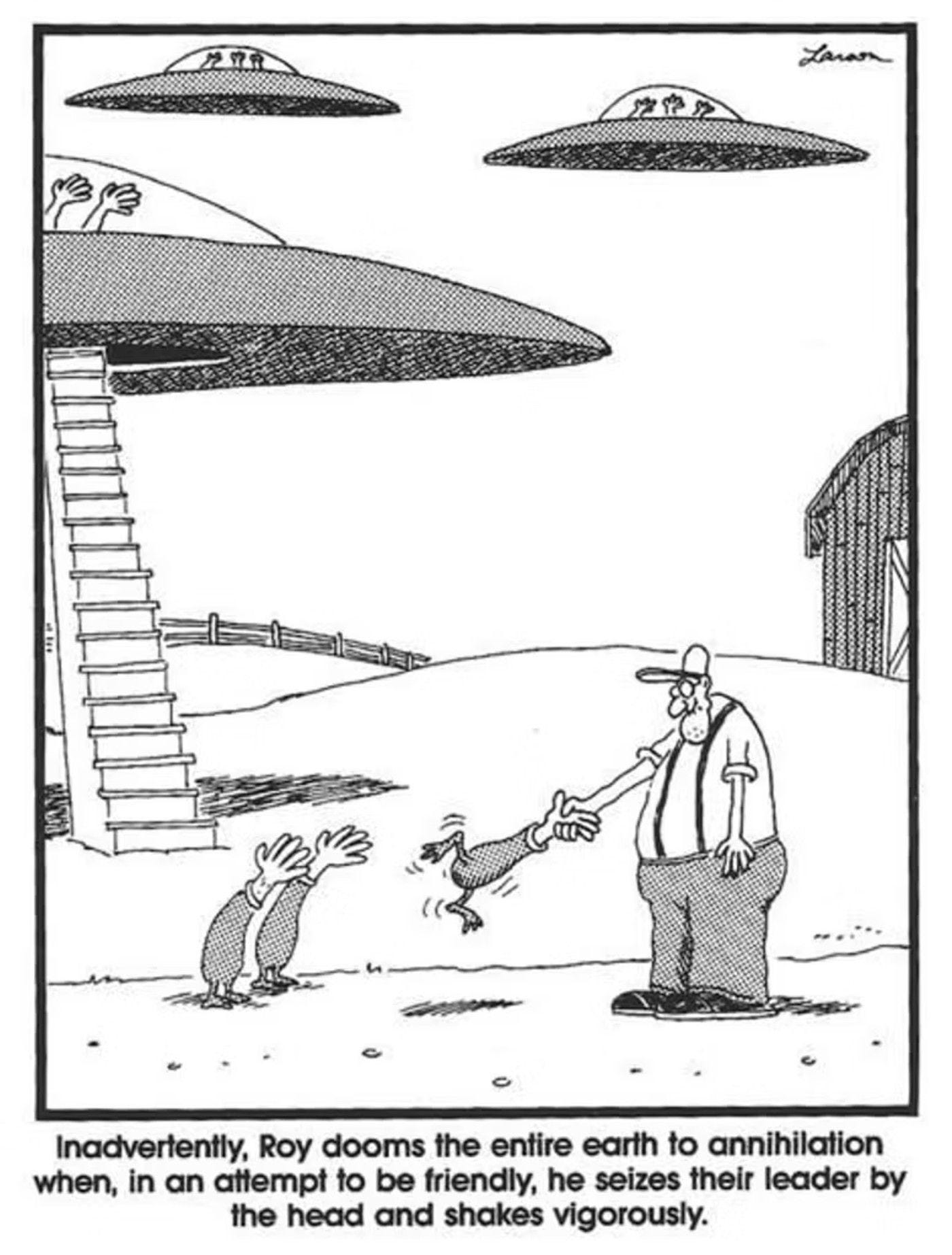
The Trouble with Busyness
For most people, the trouble with busyness is that they are far below the sweet spot of discretionary time in their average workday. This may be unavoidable in part, and some people have a lot less control than others over their schedule. But as the research suggests, many people seem to be inflicting greater busyness on themselves than is necessary because of a fear of idleness.
The solution starts with knowledge of this tendency and a willingness to confront it. Carefully monitor your work patterns and commitments for a week. If you have a hole in your schedule, do you jam it with a low-priority meeting or tasks you would ordinarily avoid? When you unexpectedly find yourself with a free hour because of a cancellation, do you fill it with make-work such as calls and emails that aren’t immediately necessary? These are telltale signs of idleness aversion.
One remedy is to create a list of discretionary tasks that are creative and attractive to you but do not involve a deadline. For me, this means sketching out book ideas in a notebook I carry around with me. When I have unfilled time, I pull out the notebook and start brainstorming. This inevitably induces a pleasurable “flow state,” which gives me energy and refreshes me—and creates an incentive to block out more discretionary time. At one point in my career, when I was running a large organization, this observation led me to ring-fence(set aside) two hours a day in the morning, when I know that my brain chemistry is best for idea work.
Beyond being fun, such a practice can be revolutionary for your career. Google reserves 20 percent of engineers’ time for projects of their own choosing—literally whatever they want to work on. This free fifth of their time has generated more than half of the company’s highest-revenue-generating products, including Gmail, Google Maps, and Google Earth. If your employer doesn’t go in for a similar program, see if you can do it for yourself by being very strict about getting your official work done within specific time limits, leaving you time for your creativity and passion.
Perhaps you try to follow this advice and still find yourself hopelessly busy. I have one other technique, which I learned some years ago from an efficiency expert. She told me to make a list of the 20 things I felt I had to get done the next day, in order of priority. Then she instructed me to take the top 10 items and list them according to how much I looked forward to doing each one. Finally, with that order, she told me to take my pencil and cross out the bottom 15 items. The top five would be my actual to-do list.
“What about the others?” I asked, dumbfounded. Her response: “You won’t do them, and no one will really notice or care, because everything else will be so good.” Obviously, there are limits to this strategy: If an emergency appendectomy isn’t in your top five because you’re not looking forward to it, you should definitely still get it done. For the most part, though, she was right—and my life improved as a result.
Classic Arthur Brooks piece on How to Be Less Busy and More Happy.
The Misplaced Importance of What We Can See vs the Importance of What is not Visible or Measurable
Hidden metrics vs Visible metrics - Money is a visible metric. Clear score and multi-player going up and down.
Time with family or peace of mind is a hidden metric.
It's easy to spend so much time optimizing for visible metrics... Because they are visible.
The hidden metrics only become visible when it's too late... They hit 0. Someone dies ...
If you are wanting a feel good moment today.
Art Wood has an Instagram site with wonderful dog moments.
Why Supplements? Where Can I find Good Quality Supplements?
Currently the supplement business is huge and not well regulated. Some companies will add additives that aren't of any benefit but it helps the company keep costs down. Also the label may say 100 mg but whether it is 100 mg is hard to say. Below I have provided links to companies that I know sell a good quality supplement. Unfortunately the cost may be higher.
Something else to take into account when choosing a supplement is bio availability. For example Tumeric (Curcumin) is a great anti-inflammatory(I take this instead of Advil) but it is better absorbed in the body when taken with black pepper or a fat like an avocado. Vitamin D is better absorbed when taken with Vitamin K.
One argument for taking supplements vs just getting it from your diet is that the soil where we get our food is depleted in nutrients and therefore the food grown in that soil is not as nutritious. We use supplements to make up for our depleted soil. Below I have copied and pasted what the supplement is about from other sources.
Here are some of the basic supplements that I take everyday. This is based on my own reasearch. I am not a healthcare professional. I have also included supplement lists below from real healthcare professionals.
There are 2 supplements that I take because I am deficient but I also recommend them because many of us are deficient in these supplements.
Vitamin D is an essential vitamin that is synthesized in our body in response to specific frequencies of sunlight hitting our skin. 2000 IU of vitamin D combined with 1 g of omega-3s and exercise has been shown to reduce the risk of cancer by 60%. Interestingly, vitamin D has been shown to increase NAD+ levels in cells. Overall, sufficient vitamin D levels may improve overall health by enhancing the immune system.
I take K Force.
Magnesium - Because 48% of Americans do not ingest enough magnesium, doctors like Dr. Brad Stanfield have said it’s the one supplement everyone should take. Stress may lead to an accelerated loss of magnesium, potentially causing a deficiency. This deficiency in magnesium could, in turn, make the body more susceptible to stress, creating a vicious cycle of stress and magnesium loss. Therefore, magnesium supplementation may calm the mind by reducing stress and improving sleep.
I take Magnesium Citrate.
There is also Momentous(Magnesium L-Threonate) and SlowMag.
Omega-3 :The most recommended supplement.
Omega-3 Huberman has said the most important macronutrient for brain health is fat. Fat isn’t always bad, especially when it comes to the brain, as omega-3s slow cognitive decline. Huberman says everyone should strive for 1 gram of EPA omega-3s per day. This can be achieved through supplementation, eating fatty fish like sardines and salmon, or a combination of the two.
I take Big Bold Health Omega - 3.
There is also Momentus Omega-3 and Thorne Omega-3
Also I would add a high quality Olive Oil.(another good fat)
The Furies Extra Virgin Olive Oil
Creatine While creatine is perhaps the most widely used bodybuilding supplement, Huberman says he takes it primarily for its cognitive effects. Studies have shown that creatine may improve short-term memory and intelligence/reasoning in healthy individuals. Creatine may also benefit individuals subjected to stress and aging. With a sound safety record and relative inexpensiveness, creatine may be a low-risk supplement to try.
I take Thorne Creatine.
Zinc If there was a super mineral, then zinc would be a contender. Zinc is an essential micronutrient that is crucial to more than 200 enzymatic reactions and plays a key role in growth, immune function, testosterone metabolism, and numerous other functions in your body. It has a beneficial impact on connective tissue, as well as reproductive and eye health.
I take Thorne Zinc Picolinate .
For anxiety and sleep:
L- theanine is safe to take every night along with Magnesium. You can also take L-theanine during the day. It is pretty mild.
Theanine - L-theanine is a non-essential amino acid responsible for much of the calming effects of tea, particularly green tea. Studies show that L-theanine supplementation reduces stress and anxiety, so its calming effect may aid in sleep. Furthermore, with a dose as low as 50 mg, L-theanine was shown to increase alpha brain wave activity, indicating relaxation.
I take Thorne Theanine.
There is also Momentous L-Theanine
High Quality Supplement Companies
Pure Encapsulations is more affordable than most and a good company
Examples of other people's daily supplement routines:
Just so you can see a variety of daily supplement lists. I have provided links to three Healthcare experts.
Dr. Peter Attia's recommended list. He wrote Outlive which is a NYT bestseller. He talks about the 4 horseman:
heart disease
cancer
neurogenerative disease
type 2 diabetes (and related metabolic dysfunction)
These conditions will be the cause of death for a vast majority of people.
Also Dr Andrew Huberman who is a neurobiologist at Stanford Medical School. He has an extremely popular podcast called the Huberman Lab. I listen to him all the time. Here is his recommended list.
Also Dr. Brad Stanfield's list. A doctor from New Zealand who I like. He is very good with explaining the current research. You can find him on YouTube.
What We talk About When We talk About People
Only the Irrational Behavior Survives - If you study the biographies of the greats or attend the funerals of people you care about — the normal rational behavior is never mentioned.
It’s filled with stories that make the individual unique. It’s all the times they broke out of the median distribution of human behavior.
If you want to create behavioral assets that tell stories for you in the future, you have to pay the price of appearing weird in the present moment.
Your personal brand is defined by your weirdness, eccentricities, and irrational behavior.
If you remove them in order to fit in with the tribe, you remove all future stories and memories that tribe will tell about you.
If you change the way you look at things, the things you look at change.
- Wayne Dyer
A Far Side Gem
The Surprising Importance of Stillness in Investing
Warren Buffett: “If I were on Wall Street, I’d probably be a lot poorer. You get overstimulated. You hear lots of things. You may shorten your focus and a short focus is not conducive to long profits.”
Neckar had a great peace titled The Skillfulness of Stillness.
He argues that in a world of constant noise and distraction, the ability to find stillness and listen to one's inner voice is crucial for success, particularly in the realm of investing.
Legendary investors like Warren Buffett, Stanley Druckenmiller, and George Soros have emphasized the importance of creating spaces of stillness to support focus and curiosity, allowing them to spot and prioritize "fat pitches" in the market.
This stillness can be cultivated through various means, such as carefully structuring one's physical surroundings, practicing meditation or other inner practices, engaging in activities that promote a flow state like walking or martial arts, or intentionally protecting periods of stillness in one's schedule.
By approaching attention with intention and avoiding the trap of constant busywork, investors can remain open to the subtle yet crucial guidance of their unbounded curiosity and unconscious mind, ultimately leading to better decision-making and the ability to seize opportunities when they arise in the midst of market chaos.
From A Few Things....
Habit is necessary; but it is the habit of having careless habits, of turning a trail into a rut, that must be incessantly fought against if one is to remain alive... one can remain alive long past the usual date of disintegration if one is unafraid of change, insatiable in intellectual curiosity, interested in big things, and happy in small ways.
—Edith Wharton, writer
Have a Great Weekend






Thank you for the Art Wood tip! Delightful!